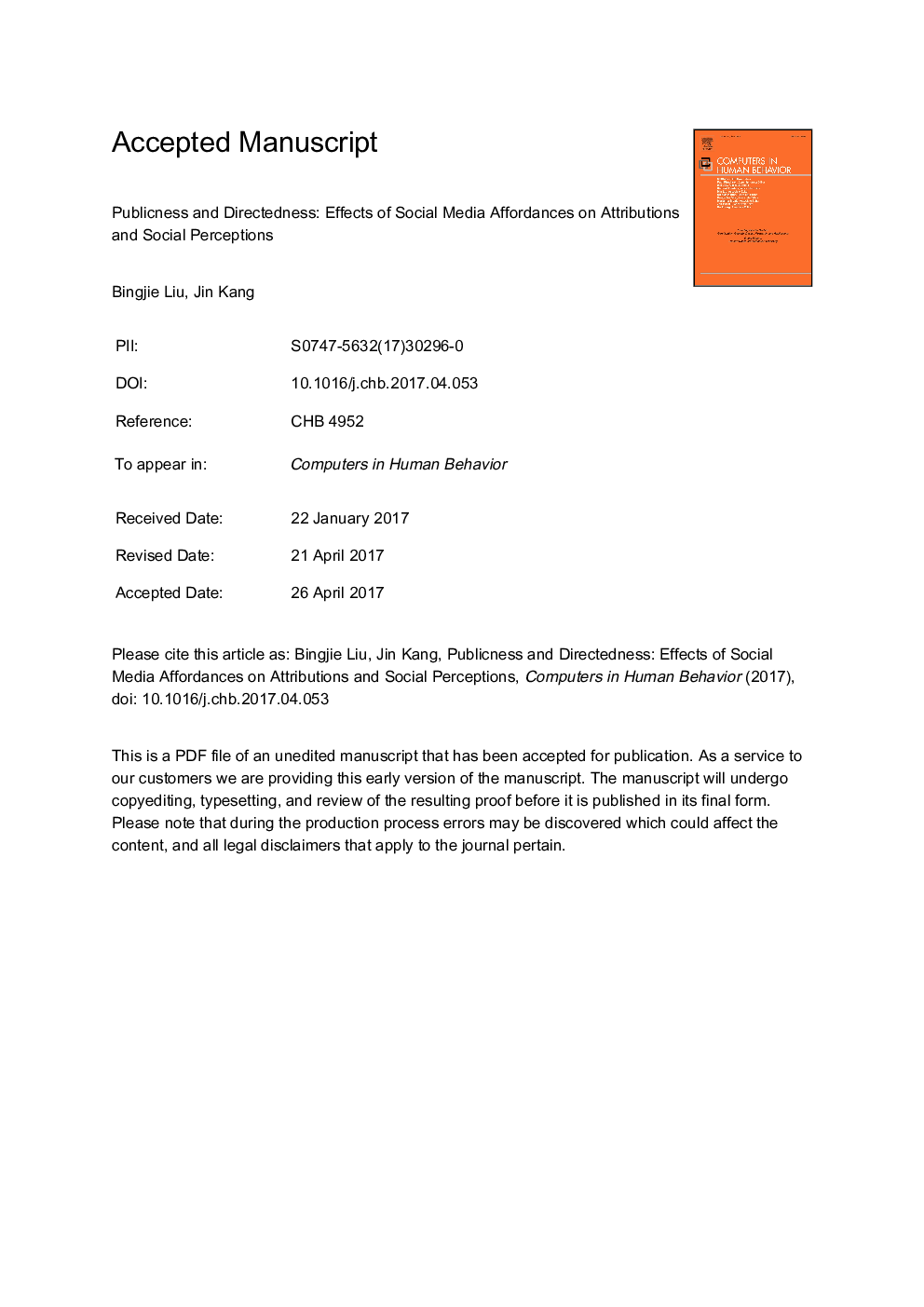| Article ID | Journal | Published Year | Pages | File Type |
|---|---|---|---|---|
| 4937480 | Computers in Human Behavior | 2017 | 46 Pages |
Abstract
SNS users can define their communication context by manipulating a message's publicness and directedness, leaving behavioral traces for observers to interpret. This study investigated how publicness and directedness of a Facebook self-disclosure post influence observers' attributions and perceptions of the message and the message sender. With an online between-subjects experiment, participants (NÂ =Â 242) were randomly assigned to be exposed to a post of either high or low publicness, either directed to a specific user or not, either about the positive aspect of the poster or about the negative aspect. Results showed high publicness led observers to make more dispositional attribution about the message sender's impression management intention, and self-disclosure was perceived as less intimate. Moreover, message sender was perceived as less likable due to such dispositional attribution. Directed message led to more interpersonal attribution, which further enhanced perceived message intimacy. Disclosure valence moderated influences of publicness and directedness. Specifically, negative self-disclosure on SNS was more associated with social norm violation and was not appreciated to be made public if it was not directed at anyone.
Related Topics
Physical Sciences and Engineering
Computer Science
Computer Science Applications
Authors
Bingjie Liu, Jin Kang,
